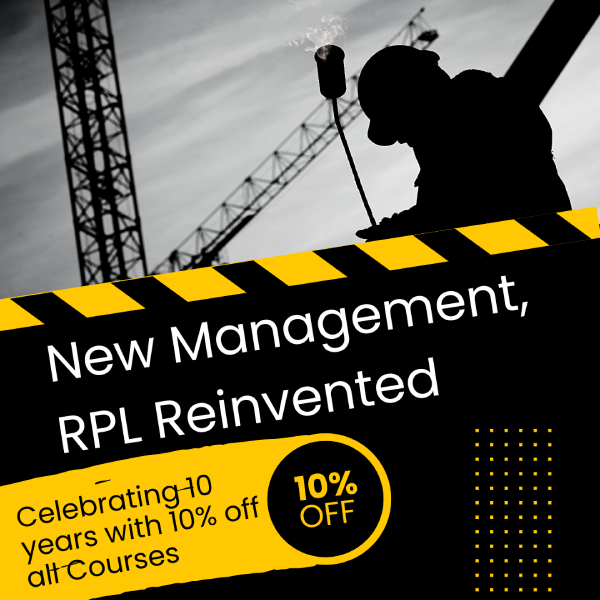Hey there! I’m Sam from Qualify Me!, Australia’s leading RPL (Recognition of Prior Learning) company. If you’ve been working in the construction industry for a while but don’t have formal qualifications, you’re probably already aware of how important a carpentry qualification can be in unlocking new opportunities.
Here at Qualify Me!, I’ve helped hundreds of people just like you turn their hard-earned skills into nationally recognised qualifications. Today, I want to talk about how getting your CPC30220 Certificate III in Carpentry can set you up for a successful career and how you can achieve this qualification quickly without going through years of training.
Why You Need a Carpentry Qualification
Let’s face it—Australia’s construction industry is booming, and qualified carpenters are in high demand. But without formal qualifications, you might be missing out on better pay, more jobs, and higher job security.
As I always say, “A formal qualification doesn’t just validate your skills—it opens doors to bigger and better projects.”
You might already have years of experience, but a nationally recognised carpentry qualification is what employers are looking for. It’s a must if you want to work on major construction sites or start your own carpentry business.
Fast-Track Your Carpentry Qualification with RPL
Here’s the good news: you don’t need to go back to TAFE or spend years in an apprenticeship to get qualified. With Recognition of Prior Learning (RPL), you can use the skills and experience you already have to fast-track your carpentry qualification.
At Qualify Me!, we’ve designed a streamlined process that’s quick and easy:
- Skills Assessment: We start with a free skills assessment to determine your eligibility.
- Portfolio of Evidence: You’ll gather proof of your experience (such as photos of your work, references, and certificates).
- Competency Check: We review your skills and ensure everything meets the standards.
- Get Qualified: Once everything’s in order, you’ll receive your nationally recognised carpentry qualification.
This process could save you years of formal training. And the best part? You’ll be ready to take on bigger roles and increase your earning potential.
"At Qualify Me!, we believe in turning your experience into qualifications fast, so you can keep moving forward in your career without slowing down."
The Skills You’ll Gain with a Carpentry Qualification
When you complete your carpentry qualification, you’ll gain a wide range of practical skills that are essential on any job site:
- Framing and formwork: You’ll learn how to construct the skeleton of buildings, which is a fundamental skill for any carpenter.
- Blueprint reading: Understanding how to read and interpret building plans is crucial for accurate construction.
- Building codes and safety regulations: You’ll be fully aware of Australia’s construction laws and ensure that every project meets safety standards.
These skills will make you stand out from the competition and give you the confidence to take on more complex projects.
Career Opportunities with a Carpentry Qualification
Once you’ve secured your CPC30220 Certificate III in Carpentry, you’ll have access to a wide range of job opportunities:
- Residential Carpenter: Work on homes, renovations, and extensions.
- Commercial Carpenter: Get involved in large-scale construction projects like office buildings, schools, or shopping centres.
- Formwork Carpenter: Specialise in creating the molds for concrete structures, an essential skill for infrastructure projects.
And if you’re thinking about starting your own carpentry business, a formal qualification is your golden ticket to get registered and insured as a contractor.
"With a carpentry qualification, you’re not just another tradie—you’re a skilled professional who’s ready to take on any job."
Frequently Asked Questions About Carpentry Qualifications
How long does it take to get a carpentry qualification through RPL?
The RPL process can be completed much faster than traditional training methods. At Qualify Me!, we typically see our clients qualify within a few months, depending on how quickly they can gather their evidence.
What is the CPC30220 Certificate III in Carpentry?
The CPC30220 Certificate III in Carpentry is the nationally recognised qualification for carpenters in Australia. It covers essential skills like framing, formwork, and blueprint reading.
Can I apply for RPL if I have informal carpentry experience?
Absolutely! Recognition of Prior Learning is designed for people who’ve gained their skills on the job, whether that’s through informal work or previous training.
Why should I get a carpentry qualification if I already have experience?
Without a formal qualification, you could be missing out on better job opportunities and higher pay. A carpentry qualification shows employers that your skills meet national standards and that you’re ready to take on more responsibility.
How does getting qualified through Qualify Me! help me locally?
As Australia’s leading RPL company, Qualify Me!, we specialise in helping local tradies fast-track their qualifications. This gives you an edge in your local job market, helping you stand out from the crowd and secure better contracts.
How to Get Started with Qualify Me!
Ready to take the next step? At Qualify Me!, we make the process as simple as possible. Whether you’ve been working as a carpenter for 2 years or 20, we can help you get your carpentry qualification fast. And if you’re looking for a local RPL company you can trust, you can always check out our Google reviews here.
"Getting your qualification shouldn’t slow you down. With Qualify Me!, it’s quick, easy, and tailored to your experience."
Conclusion
A carpentry qualification is the key to unlocking better job opportunities, higher pay, and more job security in Australia’s booming construction industry. With Qualify Me!, you can fast-track your certification and start enjoying the benefits of being a fully qualified carpenter.
Everyone wants to run a big booming business, dominate the industry and see their name on the cover of Forbes. But most businesses, not just in the trade sector, start from humble beginnings - think tech giants such as Amazon whose founders built the business from the ground up – starting with a bit of spare change, and working out of a quiet corner in their garage.
While you might have been fortunate enough to start your business from a small office space, as opposed to a garage, chances are you’ve found yourself with the same big ideas.
So what happens when your small team starts to expand? No doubt you’ve found yourself in limbo – you’re neither Apple nor a lemonade stand – so how do you establish where you sit on the scale of small to big business?
First, it’s important to differentiate between the two.
“When you’re small, there’s only a few of you, overheads are very low, you probably work from home, you can all talk to each other all the time, systems aren’t as necessary because you’re all there, helping each other out,” says Small Fish’ Jon Dale.
“You can cope, you can manage the workload and the stress load, and the number of things you need to think about.”
Meanwhile, according to Dale, big businesses require a more systematic approach, with a higher level of staff. Dale also emphasises the importance of having a a number of well-oiled machines operating:
Marketing machine
Sales machine
Operations machine
Back office machine
The people running those machines
You overseeing
In that transition period from start-up to big player, there’s a stressful period where you don’t quite have the systems in place to manage the change in workload.
“In between, when those machines aren’t quite built, but it’s too big, and there’s too much going on for you to be holding it all in your head, it’s a bit hard to work,” Dale continues.
“So that transition from small to big goes through a difficult patch at the period of stress and work and pressure when you really need to push on through to the beautiful other side and it’s hard work.”
When any business expands, you’re ultimately going to face a period of growth that’s hard to keep up with. However, maintaining momentum will help you shift from ambitious start-up to booming business.
Looking to start your own business? Head to Qualify Me! to see how a tradesman coach like Dale can give you the keys to success.













